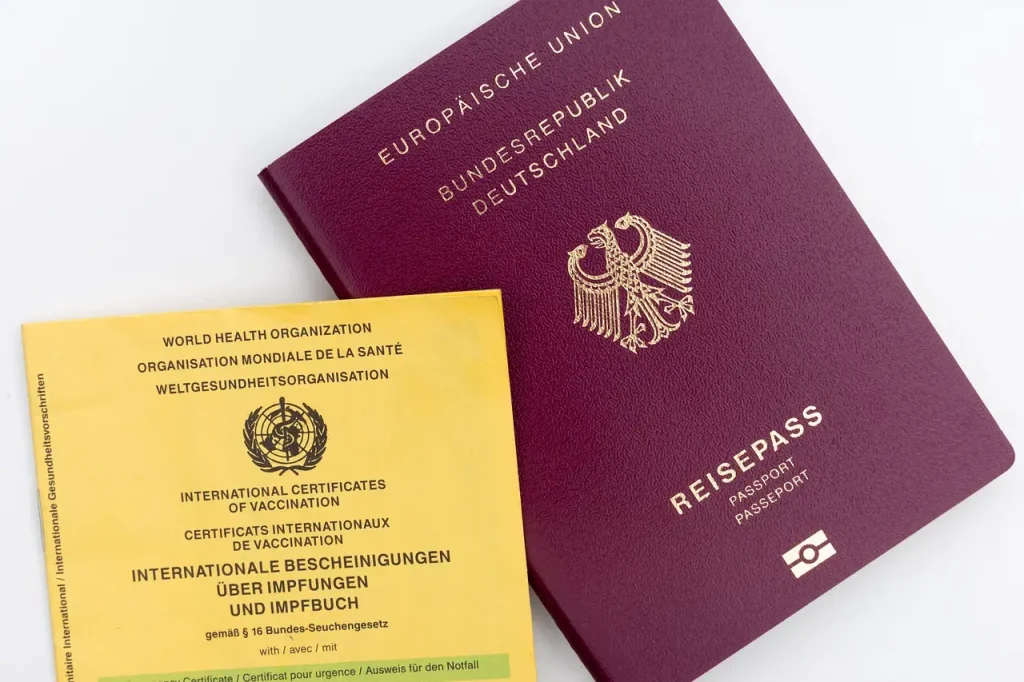Slobodna Dalmacija reports that Europe is preparing to introduce digital green certificates, the so-called ‘Covid-passport,’ and an initiative is coming from Split that could facilitate drafting this document and protect the privacy of citizens.
As Secretary of State for Europe Andreja Metelko-Zgombić said at an informal video conference of European ministers on Tuesday, Croatia welcomes the Commission’s proposal to introduce digital green certificates aimed at facilitating free and secure movement at the EU level.
The Ministry of Foreign and European Affairs website stated in the information about the meeting that the adoption of the legislative proposal and the completion of technical preparations following the plan are expected by June so that the certificates can be applied as soon as possible. A digital green certificate should be evidence that a person has been vaccinated against COVID-19, has recovered from it, or has a negative test result.
While preparations for the production of Covid passports are underway, the Split IT company Tech Resources, founded in 2016 by Josip Majić, a returnee from America, already has an almost conceptual solution feasible in practice, based on blockchain technology and smart contracts.
When you hear the word blockchain, you may first think of cryptocurrencies, but the possibilities of applying these technologies are much wider.
This Split company currently has 20 employees who work mainly for foreign clients, i.e., for export. Among the most important projects that speak about the team’s expertise is the fiscalization of bills for Montenegro, which has been implemented since the beginning of 2021, and the toll collection system in Great Britain. By the way, this company’s focus is on innovation and application of new digital technologies in real current problems of both the private and public sectors.
“Covid has affected our business, both directly and indirectly, so we took the problem of Covid passports as a project task to check whether it is possible to create such a document with complete data security, without compromising anyone’s sovereignty and without the possibility of misuse, while maintaining full functionality and fulfilling the purpose of such a document. We worked on it for two months and managed to make a conceptual solution that can be implemented in practice,” says Leo Žanetić, project manager.
He notes that this solution requires the association of Croatian IT experts to be feasible in practice. In this way, Croatia will save significant amounts of money, and at the same time, will protect the personal data of its citizens because the solution they devised completely protects privacy.
“We must protect our interests, citizens, and the state, as much as the situation allows us. We in the company are ready to gather a consortium of experts for free, communicate the solution, and fully transparently manage the project,” says Žanetić.
It would work following the guidelines published by the European Commission.
“Every EU citizen would receive a specially created digital document (similar to the online vaccination appointment system) containing their personal data and information on the type, time, and location of vaccination. When a citizen is vaccinated, the state issues them a smart passport in the form of a card with a printed code on it. When scanning the code, information is obtained from a digital document,” explains Žanetić and cites several examples.
You travel, for example, from Croatia to Italy to visit relatives you haven’t seen for a long time because of the lockdown. The police officer will scan the code from your smart passport at the border crossing and receive a confirmation that you – Mate Matić under vaccination ID number 123456789 – was vaccinated 2 days and 18 hours ago.
After entering Italy, you will jump to buy gifts at the mall. At the mall entrance, the security guard will scan the code from your smart passport and receive confirmation that the holder of that card has been vaccinated. He does not need to know your name or ID number or when or where you were vaccinated.
After a few days in Italy, you had a small accident and will be admitted to a local hospital with a swollen leg. The doctor who receives you will scan the code from your smart passport and receive a confirmation that you – Mate Matić, health insured in the Republic of Croatia under number 65432, have been vaccinated with the Pfizer Mo vaccine. C113 2 days and 18 hours ago in Split, with the remark that you are allergic to penicillin.
As the Split IT experts point out, all this can be done with the help of blockchain technology, building a distributed application that uses a smart contract as back-end functionality. Thus, they would make their own blockchain with their own smart contract in which all the scenarios that, for example, Mate Matić had when visiting relatives in Italy were defined.
“This means that state information centers, i.e., data centers where e-citizen systems, e-referrals, e-cadastre, etc., work, would become the so-called “Miners” of that blockchain. By reaching a mathematical consensus, they would verify each other’s credibility on the items from the smart contract. No one on that network could read any data without first the whole network approving and verifying it. All data is in blocks arranged in a chain and merged by reaching the specified consensus, hence the name blockchain. This achieves complete decentralization of the database as well as its management. No one can decide anything on their own without the approval of other miners,” explains Žanetić.
He emphasizes that this means that a citizen can only endanger their data and no one else’s. Also, the possibility of direct cyberattacks on weak points is eliminated because there are none.
“There can be no error on the server so that the system “crashes” because the system is not located on any server but is online and updated on the systems of all miners. If one miner falls, the only thing that can happen is a slight and short-term slowdown of the system until a new miner is activated and takes over the job of the one who fell,” says Leo Žanetić.
Now it is the turn of the Croatian Government and competent institutions to could consider this initiative. Domestic knowledge and domestic resources are available to them.
To read more about business in Croatia, follow TCN’s dedicated page.









